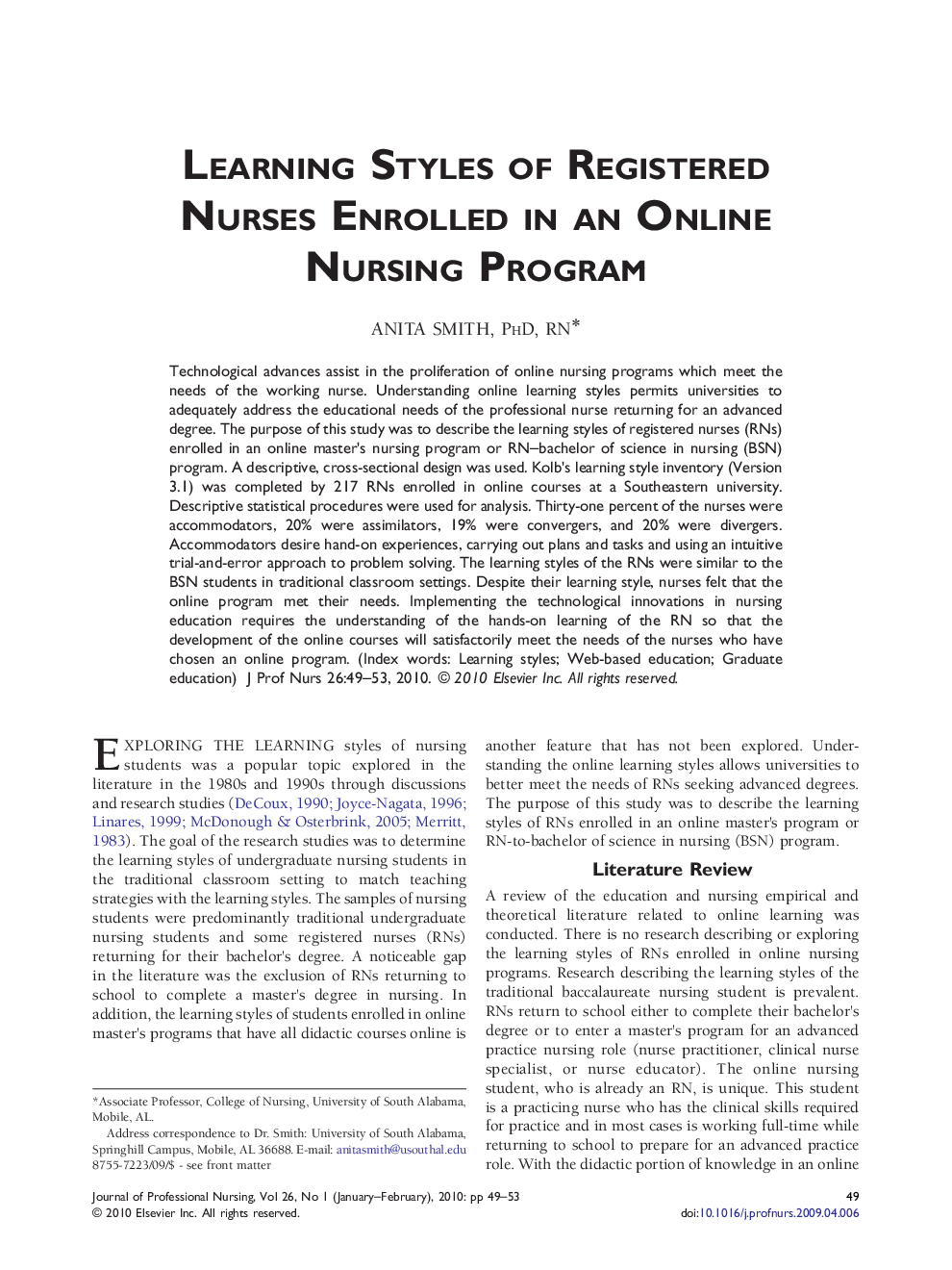| Article ID | Journal | Published Year | Pages | File Type |
|---|---|---|---|---|
| 2671541 | Journal of Professional Nursing | 2010 | 5 Pages |
BackgroundTechnological advances assist in the proliferation of online nursing programs which meet the needs of the working nurse. Understanding online learning styles permits universities to adequately address the educational needs of the professional nurse returning for an advanced degree.PurposeThe purpose of this study was to describe the learning styles of registered nurses (RNs) enrolled in an online master's nursing program or RN–bachelor of science in nursing (BSN) program.MethodA descriptive, cross-sectional design was used. Kolb's learning style inventory (Version 3.1) was completed by 217 RNs enrolled in online courses at a Southeastern university. Descriptive statistical procedures were used for analysis.DiscussionThirty-one percent of the nurses were accommodators, 20% were assimilators, 19% were convergers, and 20% were divergers. Accommodators desire hand-on experiences, carrying out plans and tasks and using an intuitive trial-and-error approach to problem solving.ConclusionsThe learning styles of the RNs were similar to the BSN students in traditional classroom settings. Despite their learning style, nurses felt that the online program met their needs. Implementing the technological innovations in nursing education requires the understanding of the hands-on learning of the RN so that the development of the online courses will satisfactorily meet the needs of the nurses who have chosen an online program.
